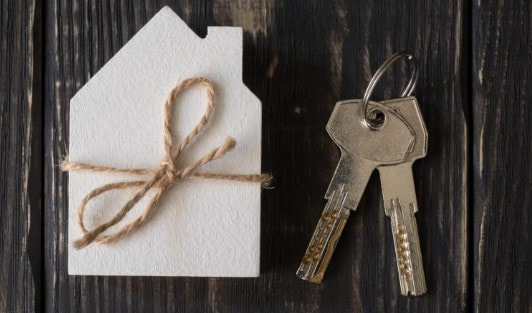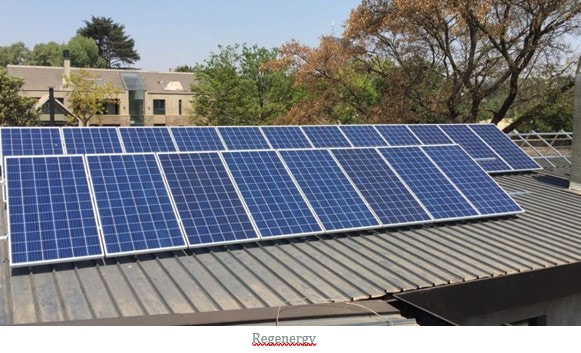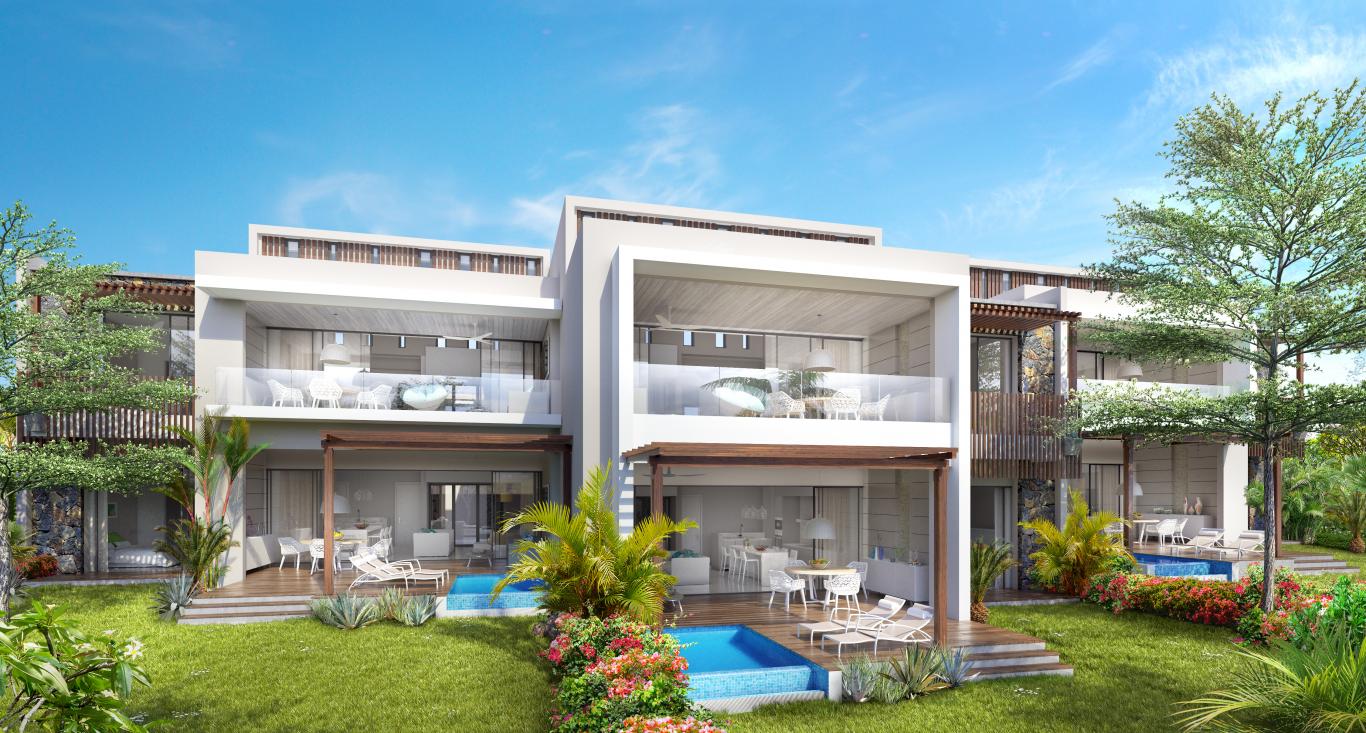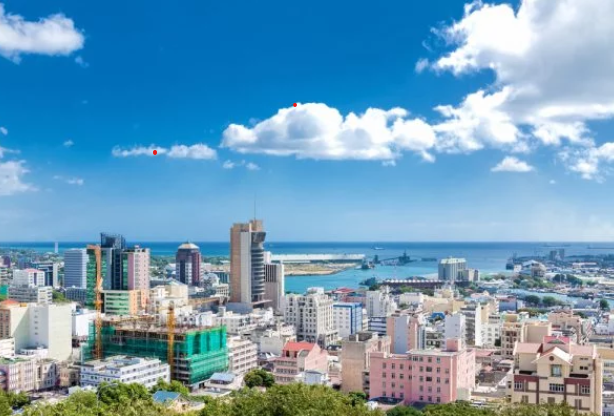|
South Africans enter 2020 with one of the best property buyer's markets in years - and the reasons to buy are compelling.
The residential property market in SA is currently oversupplied in most areas, meaning price growth is likely to remain flat in the 4% range at best. Sellers would therefore need to keep their asking prices market-related or risk not attracting buyer interest. Here are 6 reasons why 2020 is a great year to buy property: Oversupply Most areas are still overstocked, so there are still plenty of excellent buys in the market. Negotiating power It's a buyer's market, meaning prospective buyers can negotiate strongly. Waiting periods Sellers who have been holding out may be more ready to sell. Borrowing conditions The flat interest rate and July rate cut has contributed to low borrowing costs and favourable mortgage lending conditions. Related to the above, banks are keen to lend, and first-time buyers are finding bonds of up to 105%. Flat prices Price growth has barely kept track with inflation and will likely remain flat for some time, which means buyers can find homes at "last year's prices". However, property does generally appreciate in value, meaning prospective homeowners can start small and renovate or customise to suit their needs. Income potential Homeowners can earn income from their properties by house sharing or renting out a room, flat, or cottage, or even renting out the entire property, while still retaining the asset and benefiting from the potential capital growth. Article referenced from: https://www.fin24.com/Companies/Property/6-reasons-to-buy-property-in-2020-20200107
1 Comment
 South Africa is currently in the midst of a buyers' market, creating an opportunity for first-time buyers to purchase property. On top of that, banks are extending the threshold of 100% loans to qualified buyers, and in some cases even 105% loans to cover the transfer costs and registration fees. Before you begin the home buying process, you need to see if you can actually afford it. This will require doing a thorough audit of your finances to see what you can comfortably afford to spend on a house. As a home buyer, you also need to be prepared for the additional costs of a property purchase, as well as the ongoing costs of home ownership. When you buy a home, the additional transaction costs - sometimes called the "hidden" costs - include property valuation, bond initiation, bond registration, legal and transfer fees, as well as transfer duty if you are buying a pre-owned property. If you buy a newly-built home you will avoid having to pay any duty because VAT will be built into the purchase price. The extra transaction fees can add up to quite a significant amount, on top of the purchase price of your new home, and you will usually have to pay them in cash to the attorneys handling the registration of your new bond and the transfer of the property into your name. For example, on a home costing R1.5m the total additional transaction fees would be almost R85 000 on top of any cash you might need to pay a deposit. Once you have calculated all your monthly expenses to see what disposable income you can put towards paying off a home loan, you then need to figure out the price range you should be shopping in. If you're making an offer as a first-time home buyer, you need to do your homework before negotiating with the seller. Look at the location and size of the property, the current economic and market conditions as well as the prices of similar properties in the area. All these must be factored in when putting in your offer. If you are using an estate agent, the agent will serve as the "middleman" and will present your offer to the seller. If a final price is agreed upon, you will complete the formal offer to purchase. Once you and the seller have signed the document, you are both legally bound by it. After your finance has been approved and you have paid all costs to the transferring attorney, the transfer process will begin. It is currently a property buyers' market, but it is essential to do your homework first so that buying your dream home doesn't turn into a financial nightmare. The stagnant economy, slightly lower prime lending rate, and increased number of properties for sale in numerous locations are encouraging some potential buyers – who might have been sitting on the fence – to seriously explore the market. Before signing on the dotted line, however, it’s important to inform yourself about the hidden expenses that come with buying a property. Insurance (including homeowner's, life and household contents cover) tops the list, because it will help protect you should something unfortunate such as theft, fire, or major damage affect your house. Furthermore, every month you would need to pay for your water and electricity, plus rates and refuse removal. Owning a home also requires regular check-ups and repairs, while installing a good security system is likely to be a key priority to keep you and your possessions safe. If you're living in a sectional title estate, you may also be required to pay monthly levies for the upkeep and management of the communal property. Article referenced from: https://www.fin24.com/Economy/sa-buyers-market-creating-opportunities-for-first-time-home-owners-20191222 This is how much it will cost to take your home off the grid - and avoid load shedding forever12/10/2019 A Eskom is now rationing electricity at stage 6. Experts have warned that South Africa will struggle with electricity provision for many more years given a myriad of problems at the utility, including shoddy maintenance. For those too frustrated to deal with that kind of pain, off-grid home solutions won't come cheap – but they are no longer entirely beyond the reach of an upper-middle-class family either. Business Insider South Africa approached various renewable energy solutions companies to see how much it would cost to go off the grid. Prices vary depending on what your electricity usage is, but for a standard four-person family home you could expect to pay around R200,000 – without taking government rebates into account. According to Paul Lombard from energy solutions company Regenergy, a fundamental challenge to renewable energy has been the upfront costs. But these days, most companies offer monthly instalment plans to allow users to pay off the investment over anything up to 15 or even 25 years. “Many customers feel that the pride and peace of mind of solar ‘pays for itself’ as soon as the system powers on, and they can remotely monitor and adjust their system on their smart phone app,” said Lombard. These are the key components to move your house over to solar energy: Solar panels As a rough guide, a 1 kilowatt (kW) solar array takes up about 8m2 of space on your roof. This can produce about 3-5 kilowatts hours of energy (kWh) per day depending on the angle and direction the panels face. Solar panels are typically installed facing north in South Africa, in order to maximise exposure to the sun’s rays. You will need to replace today's panels every 25 to 40 years. Battery storage View this post on Instagram A post shared by Regenergy (@regenergy) on Mar 13, 2019 at 6:57am PDT Key to going off the grid is a battery storage unit. Newer battery types have been able to push the limits to improve storage for longer periods as well as stand up to more recharges before running out of steam, two of the major problems with home installations to date. “Lithium batteries need replacing every 8 to 10 years, especially in hotter parts of our country. Typical solar deep cycle batteries like lead, calcium or other AGM [absorbed glass mat] batteries only provide 1,500 to 2,500 recharges. These ‘old school’ batteries require replacing every 3 to 5 years,” said Lombard. Inverter and/or charge controller Batteries produce output power in direct current (DC) form, which can run at very low voltages but cannot be used to run most modern household appliances. Utility companies and generators produce sine wave alternating current (AC) power, which is used by most commonly available appliances today. Inverters take the DC power supplied by a storage battery bank and convert it to AC power. You can expect your inverter and/or charge controller to have 10 to 15 years of operation. Three companies give cost estimates, based on some typical home installations. The three companies that gave us broad-stroke proposals give some idea of the range you can expect to pay to take a home off the grid right now: between R150,000 and R350,000. Here's what each of the three companies quoted. Regenergy 2 person home using 15kWh/day - R152,000 4 person home using 25kWh/day - R270,600 5 person home using +35kWh/day – R359, 790 SolarConnect 10kW (29 - 46kWh) average 4 bedroom home - R215,000 15kW (75kW) 5+ bedroom - R240, 000 Zeroth 10kW 2-4 bedroom home - R249,669 (excluding Vat) 15kW 5 + bedroom home - R349,669 (excluding Vat) If you feel that a full off-the-grid solution is too much, there are also other options. Björn Potgieter of SolarConnect, says they can provide a grid back up system using solar electricity for R120,000 or for R49,500 a basic back up that excludes powering stove, geysers, air conditioning. Article referenced from: https://www.businessinsider.co.za/this-is-how-much-it-will-cost-to-take-your-home-off-the-grid-and-avoid-load-shedding-forever-2019-3  Why you shouldn't take the For Sale boards down over the summer holiday period. Have you noticed how all the For Sale boards in the suburbs seem to disappear the minute that schools close for the December break? This generally doesn’t happen because everyone’s gone away, or because estate agents also feel like a holiday, but because home sellers have the impression that buyers don’t go property shopping in the festive season and that it is thus a waste of time to try to sell during this period. However, this is really not true. In fact, the summer holidays are often particularly busy home-buying times – and not only in SA’s beautiful coastal towns and cities – because this is when those who have been transferred for work and those who want to move to live closer to certain schools and those who want to buy for any other reason are most likely to have the time off to find a new home The reduced number of homes available for prospective buyers to view means there is less competition for their attention and actually increases the chance of achieving a sale if you keep your home on the market during the holidays. Some other things to consider before you give your home a “rest” during the festivities are the following:
Article referenced from: https://www.privateproperty.co.za/advice/news/articles/keep-your-doors-open-to-buyers-this-summer/7296 After a challenging year for the property market the decision by the Reserve Bank’s Monetary Policy Committee to retain the repo rate unchanged at 6.5% and the mortgage rate at 10% is disappointing as we head into the festive season.
The news that inflation had dipped to a nine-year low of 3.7% (from 4.1% in September) along with a reasonably stable currency should have been enough to motivate a rate cut. The economy and consumers can do with some good news and it would have been a welcome boost as we head into the important retail season. Nonetheless, and despite perceptions, there has been plenty of activity in the market, but largely at the lower price bands. This year has been the tale of two markets - the busy low to mid-market to R1.8 million (R3 million in some areas) boosted by the favourable mortgage lending climate at the one end of the spectrum and the upper-end R10 million-plus market where little to no activity is taking place. The upside to the current conditions is that it is one of the best times to buy and this should remain the case during the early part of 2020. The interest rate is at the lowest level in years and the flat price growth means that there is a good window of opportunity for buyers. While anticipating an increase in the number of transactions, the tale of two markets will likely continue with activity concentrated below R1.8 million, supported by the low borrowing costs and favourable mortgage lending conditions. 2020 will start off with a market which remains oversupplied in most areas. Price growth is expected to remain flat in the 4% range at best and sellers will need to keep their asking prices market-related or risk not attracting buyer interest. The Springbok win has gifted South Africa a ray of sunshine and has shown what is possible and can be achieved if there is political will and commitment. It has lifted the mood in the country, and we hope that this can spill into the economy and property market. Until then property 2020 is likely to be more of the same. Article referenced from: https://www.property24.com/articles/no-rate-cut-disappoints-but-theres-great-value-for-savvy-home-buyers/29053  As December swiftly approaches, many homeowners prepare to rent out their primary or secondary residences via Airbnb. Airbnb has provided landlords and homeowners alike with the opportunity to make an income from connecting directly with guests looking for a comfortable location to stay in South Africa. Travys Wilkins from independent digital brokerage, CompareGuru, says that there are important home insurance considerations that hosts need to take into account before embarking on a rental agreement. “It’s an exciting prospect to make money off your primary and most likely, largest asset, but there are several things to take into account before letting your property via Airbnb.” Wilkins highlights 4 factors to consider: 1. If something goes missing, Airbnb isn’t liable Airbnb provides protection to its hosts by covering “up to $1 000 000 for damages to covered property. This in the rare event of guest damages above the security deposit or if no security deposit is in place”. This essentially means that if a guest slips and falls in your house and wants to sue you, Airbnb has a mechanism in place for that. It also means if they burn the gazebo in the garden down, you’re covered. The Host Guarantee Program does not replace your homeowner’s insurance or renter’s insurance. There is a misconception that Airbnb will pay out should any household contents go missing. According to the site, “The Host Guarantee Program doesn’t cover cash and securities, collectibles, rare artwork, jewellery, pets, or personal liability. We recommend that hosts secure or remove valuables when renting their place. Not all insurance will cover damage or loss to property caused by a guest renting your space.” This means that if you don’t currently have home insurance or household contents insurance in place, it is highly advisable to do so before you open your doors to potential guests. 2. Inform your insurer Wilkins says that full disclosure to your insurance provider is always the best policy. “There is always a risk involved with renting your home to people you essentially don’t know, and it’s this risk that makes it even more important to let your insurer know about the rental agreement.” In the unfortunate event that you’re needing to claim, it’s always better that your insurer is aware of the rental. 3. Understand what is and isn’t covered Depending on your policy, ‘business pursuits’ on your private property may be excluded from your cover. It is highly advisable to contact your insurance provider to find out how renting a room in your house, via Airbnb, may affect your risk profile, and as a result, your premiums. “In some cases, homeowner’s insurance policies require visible signs of forced entry before a claim of theft is paid out,” says Wilkins. To help combat this, he suggests having a written and signed agreement with the Airbnb guest. The agreement will indicate that they will be held liable for any stolen or damaged items if there are no signs of forced entry. 4. Business or pleasure? If you choose to use Airbnb on a continuous basis, to earn a more fruitful income than a long-term rental, your insurer may regard this as a business. In such cases, you will be advised to take out business insurance, as home insurance policies do not cover business pursuits operated at home. Wilkins references the recent announcement by the City of Cape Town making it easier for homeowners to rent out their properties via Airbnb. The proposal allows for short-term letting of a house or flat for a period not exceeding 30 consecutive days for the same guest. “Should your rental agreement be longer term, then it becomes even more important to get the proper advice on the appropriate insurance coverage required to cover all eventualities.” “It’s critical to understand all the in’s and out’s of renting your property out for any period of time – be it a couple of days or a couple of months,” says Wilkins. Article referenced from: https://sapropertyinsider.co.za/2019/11/19/airbnb-ing-property-5-important-tips/ With increased financial pressure on everyone in the current economic climate, landlords need to be vigilant as to how they vet and process potential tenants - to avoid the risk of future defaults. Managing tenant risk has therefore become crucial. As with all risks, tenant risk is best managed upfront and I would recommend the following steps to do so.
1. Do a thorough credit, reference and FICA check It starts with doing a thorough credit check on prospective tenants and a reference check with their previous landlords. A credit check gives you insight into how they manage their financial affairs and a reference check with their previous landlords help you find out if they maintained the property in good condition, respected any house rules that were in place and paid their rent on time. Landlords and tenants might not be aware that estate agents are legally obliged to obtain proof of their identity and proof of address according to the Financial Intelligence Centre Act, commonly referred to as FICA. Your agent will require sight of all original documents or, alternatively, certified copies. Another vital aspect of a rental is when providing original identity documents, these will need to be seen in the presence of the document holder. 2. Confirm income earning with current employer The next step is an income reference check with their current employer. It is important to confirm the prospective tenant’s employment status as well as their income. As a general rule, the monthly rental should be more or less 30% of the tenant’s gross income. Unfortunately, in the current economic environment, many people have wound up with black marks on their credit records sometimes through no real fault of their own. When people lose their jobs, it’s difficult to pay the bills, so finding tenants with perfect credit records may not always be that easy. But there are ways to limit your risk if you find you need to accept a tenant with a questionable credit history. Firstly, take a larger deposit if the tenant has any marks against his name on his credit record. Secondly, ask for more than one month’s rent in advance and, thirdly, negotiate a shorter term lease, with an option to extend, preferably an initial period of six months. That way, over the six month period, you can assess the tenant yourself and determine whether you’d like to extend the lease or not. Of course, not everyone can afford a large deposit and more rent upfront, but holding out for a tenant whose references check out is often the right strategy. 3. Pre- and post-site inspection Prior to the tenant moving in, landlords would be advised to have a full-site inspection done, which would consist of a full report on the status of the property as well as photos to confirm these facts. It is also recommended that a follow-up site inspection is done when the tenant vacates at the end of the lease period, prior to refunding the deposit. Site inspections can also be done midway through the lease if the landlord has concerns about the tenant’s status. Remember that eviction is a lengthy and costly process. You could lose months of rental income, not to mention thousands of rands in legal fees if it comes to having to effect an eviction. Article referenced from: https://www.bizcommunity.com/Article/196/569/197358.html

“Of course, no-deposit or 100% home loans do make it easier for young buyers and first-timers to get a quick start in the property market, and over the past 10 years they have once again become more readily available, especially to buyers in the affordable home sector. “However, it is important to understand that 100% loans come at a high long-term cost, and that with home price increases currently running behind the rate of inflation, there is less pressure to get into the market quickly and all the more reason to save and put down a deposit of 10% or even 20% of the purchase price.” In the first place, he says, this will make it easier to qualify for a home loan. “If you were buying a R1m property and could put down a 10% deposit (R100 000), for example, the gross household income required to qualify for a bond at the current prime rate of 10% could drop from around R32 000 a month to around R29 000, depending on your other monthly expenses. “In addition, the minimum monthly bond repayment will fall from R9650 to R8685, which will immediately make your home more affordable on a month to month basis, and reduce your household expenditure by almost R12 000 a year.” (See table below.) In fact, says Botha, it would probably save you much more than that, because 100% loans are usually only granted at interest rates well above prime. Putting down a substantial deposit will not only increase your chances of loan approval but also put you in a strong position to secure a much lower interest rate, because it makes you a lower-risk borrower for the banks. “So if you are approved for a R1m home loan with no deposit, the interest rate might be 12%, for example, while paying a R100 000 deposit might enable you to secure a R900 000 home loan at an interest rate of 11% or even less, depending on your personal financial profile. And the difference that could make to your current and future finances is really significant. “Taking that example, the table below shows how the smaller home loan (after payment of a 10% deposit) plus a 1 percentage point difference in the interest rate charged could translate into annual savings of more than R20 000 on your home loan repayments, plus a saving of more than R300 000 on the total interest payable over the lifetime of your bond. That would be a worthwhile return on the R100 000 initially invested in your home as a deposit.” And finally, he says, saving a deposit puts home buyers in a better position to weather any future financial difficulties. “If someone with a new 100% home loan were suddenly to lose their job, for example, and had to sell their home in a hurry, there would be selling costs and agent’s commission to pay as well as the 100% loan to repay, so they could quite easily end up owing more than the sale price of their property. “The buyer who had paid a 10% or 20% deposit would obviously be able to cope much better in this situation – and it is worth noting that they would also be in a better position to cope with any future rate increases, or to start paying their home off more quickly if interest rates should fall.”  While Cape Town's property prices, bolstered by better governance, a safer environment and a better quality of life, continue to outstrip other cities, experts are now reporting a slow down in semigration figures to the city and its immediate surrounds. Has affordability finally tipped the scales out of the Cape's favour, or are there other factors at play? Previously, semigration was largely driven by the governance in a region. People just wanted to live in a province where they got what they paid for in terms of municipal service delivery. Cape Town was always the poster child for this, relatively speaking, but recent times have somewhat changed this sentiment. Increases in crime, traffic and water issues, combined with the collapse of local agriculture and tourism, have had a notable impact on the perceived efficacy of Cape Town’s local government. This, together with major property price growth and rental escalations, has made the relative value of living in the Mother City less obvious to upcountry buyers. Retirees opting for Garden Route We’re seeing notable trends in population groups like retirees choosing to settle along the Garden Route instead of in the greater Cape Town region. This is partly because of the quieter, safer environment and more predictable service delivery on offer, and partly because you can get a lot more for your money outside of the city and its immediate surrounds. This is particularly important for those on a fixed income, like retirees, but also influences younger buyers with families to raise. Lifestyle also plays an important role in semigrants opting out of the Mother City. The area along the East Coast, between Cape Town and Port Elizabeth, is without a doubt one of the most beautiful parts of our country. Many of the towns along the Garden Route are also the safest places in which to bring up a family and offer an incredible lifestyle with an emphasis on family, work-life balance and outdoor activities. KZN North Coast attracting entrepreneurs The KZN North Coast is equally desirable from this perspective, boasting close proximity to two of the busiest ports in Africa as well as easy access to King Shaka International Airport. This has attracted a multitude of entrepreneurs to the area, who are making the most of the excellent value for money and quality of life on offer, paired with abundant business opportunities. We’ve also seen a rise in the ‘super commuter’ – professionals who live in small country or coastal towns and commute to major business hubs during the work week. This, together with increasing remote work opportunities, has made it possible for professionals to look for property further afield than the major cities and could well be contributing to the slow decline of semigration to Cape Town. While semigration figures to the Cape have certainly been dropping the Mother City remains a popular destination for South Africa’s semigrants. However sellers in the region must guard against overambitious pricing if they want to continue to capitalise on this trend. Properties that remain on the market for long periods of time are doing so because they’ve been overvalued and aren’t competitive enough for today’s buyers. The world is getting smaller and Cape Town’s competition is growing. If sellers are going to continue to attract buyers from upcountry, they’re going to have to hone their competitive edge. Article referenced from: https://www.bizcommunity.com/Article/196/698/196414.html |
SO WHY US?....1. Our core values of communication and transparency means that clients are never unpleasantly surprised during the process and what you see is what you get - great results, fast and friendly Archives
February 2021
Categories |








 RSS Feed
RSS Feed
